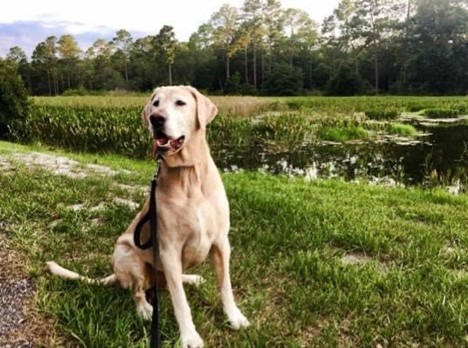
For many veterans returning from active duty, the transition to civilian life can be challenging, particularly for those who have sustained physical or psychological injuries during their service. Coping with disabilities such as mobility limitations, traumatic brain injury (TBI), or post-traumatic stress disorder (PTSD) can significantly impact a veteran’s quality of life. In recent years, service dogs have emerged as invaluable companions, providing essential support and assistance to veterans with disabilities. In the following article, Jarrett Otto Gimbl explores the silent but profound role that service dogs play in helping veterans overcome obstacles and lead fulfilling lives.
Understanding Service Dogs for Veterans
Service dogs are specially trained to assist individuals with disabilities, performing tasks tailored to their handler’s specific needs. For veterans with disabilities, service dogs offer a range of benefits, including:
Mobility Assistance: Service dogs can help veterans with mobility impairments by retrieving dropped items, opening doors, and providing stability while walking or navigating stairs.
Emotional Support: Many veterans struggle with mental health issues, depression, or anxiety. Service dogs provide emotional support and comfort, reducing symptoms and helping veterans cope with stress and trauma.
Alerting to Medical Issues: Some service dogs are trained to recognize and respond to medical emergencies, such as seizures or diabetic episodes, by alerting their handler or fetching help.
Social Connection: Service dogs serve as social icebreakers, facilitating interactions and reducing feelings of isolation and loneliness for veterans.
Training and Certification
Service dogs undergo rigorous training to learn specialized tasks tailored to the needs of their handlers. Training typically includes obedience training, task-specific skills, and public access training to ensure the dog can accompany its handler in various environments. While service dogs are not required to be certified or registered by law, reputable organizations adhere to industry standards and best practices for training and placement. Veterans interested in obtaining a service dog should research accredited organizations and undergo a thorough application and assessment process to determine eligibility and suitability for a service dog partnership.

The Benefits of Service Dogs for Veterans
The bond between a veteran and their service dog is unique and profound, offering numerous physical, emotional, and social benefits:
- Enhanced Independence: Service dogs empower veterans to live more independently by assisting with daily tasks and reducing reliance on caregivers or assistive devices.
- Improved Emotional Well-being: The companionship and unconditional love of a service dog provide emotional support and stability, reducing symptoms of anxiety, depression, and PTSD.
- Increased Confidence: Service dogs boost confidence and self-esteem, enabling them to navigate public spaces and social situations with greater ease and reassurance.
- Sense of Purpose: Caring for a service dog gives veterans a sense of purpose and responsibility, fostering a meaningful connection and sense of companionship.
- Physical Assistance: Service dogs offer practical assistance with tasks such as retrieving objects, opening doors, or providing balance and stability, enhancing mobility and safety for veterans with physical disabilities.
Challenges and Considerations
While service animals offer invaluable support to veterans with disabilities, there are challenges and considerations to keep in mind:
Access and Public Awareness: Despite legal protections for service dogs, veterans may encounter challenges accessing public spaces or facing discrimination due to lack of awareness or understanding of service dog rights.
Financial Costs: Obtaining and caring for a service dog can be costly, with expenses including training, veterinary care, food, and ongoing maintenance. Veterans may need to explore funding options or seek assistance from charitable organizations to cover these costs.
Commitment and Training: Service dogs require ongoing training, socialization, and care to maintain their skills and well-being. Veterans must be prepared to invest time, effort, and resources into their service dog partnership.
Matching Process: Finding the right service dog match is essential for a successful partnership. Veterans should work closely with service dog organizations to ensure compatibility and suitability based on their needs, lifestyle, and preferences.
Conclusion
Service dogs play a silent but invaluable role in assisting veterans with disabilities, providing physical assistance, emotional support, and companionship. The bond between a veteran and their service dog is built on trust, mutual respect, and unconditional love, offering veterans a lifeline of support as they navigate the challenges of civilian life. As awareness of the benefits of service dogs for veterans grows, it is essential to advocate for greater access, resources, and support to ensure that all veterans who can benefit from a service dog partnership have the opportunity to experience the life-changing impact of these remarkable animals.